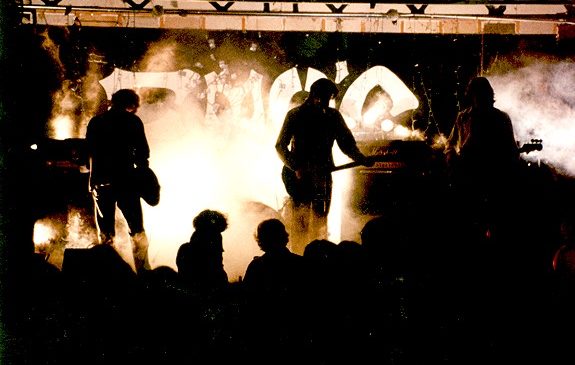City adds funding and transparency to program helping endangered creative spaces
Thursday, March 5, 2020 by
Chad Swiatecki The city is making changes to a program created to assist music venues and creative spaces facing displacement, with the primary goal of making the selection process for grant recipients more transparent.
The Creative Space Assistance Program, which was fully launched last year with $750,000 in funding after a smaller pilot program in 2018, will have $800,000 in funding this year and a longer application period for both nonprofit groups and for-profit businesses. Recipients can use the grants, which are capped at $50,000, for rent stipends, improvements for their facilities or moving expenses after being displaced.
Kim McCarson, economic and business liaison in the city’s Music and Entertainment Division, said this year the selection committee will have open deliberations when reviewing applications and applicants will be able to attend and respond to committee questions. She said part of the decision to close those sessions with no recordings made was because of the sensitivity of business information related to the for-profit applicants.
There will also be an appeals process for applicants who feel they were affected by an administrative error, conflict of interest or misrepresentation of facts related to their request.
“We heard back from the community and the applicants that they wanted to know more about the process and what was happening in the deliberations,” she said at Monday’s Music Commission meeting.
“Some of the applicants who are nonprofits also applied for cultural arts money and they have a process that’s very open where people can attend the deliberations in person, the deliberations are recorded and the grant committee can ask questions of the applicants in person. Our group was more closed, it was not an open process in that way and we didn’t take recordings, we took notes and made those notes available.”
The application process will begin in the spring, with applications judged by a committee appointed by the Music and Arts commissions.
Those two groups are forming a joint working group that will decide how the evaluation committee will be structured and how it will conduct its business. At Monday’s meeting, the Music Commission voted to appoint commissioners Graham Reynolds and Oren Rosenthal to the working group.
The assistance program was created as part of the city’s response to arts venues that are facing steep rent increases or having their leases terminated because of development pressures.
The most recent round of recipients was announced in December, featuring a mix of 26 music venues, theaters, museums and other creative spaces.
The pilot program known as the Arts Space Assistance Program followed the longtime model from the city’s Cultural Arts Division of only accepting nonprofit applicants. The decision to allow for-profit businesses to apply for grants under the expanded program has generated some frustration among cultural arts proponents.
The change has been an ongoing discussion topic at Arts Commission meetings, with commission members frustrated at nonprofits competing with privately held businesses for the same pool of money. They also told city staff they want more information about how the application and selection process will be carried out.
At Monday’s Music Commission meeting, Erica Shamaly, manager of the Music and Entertainment Division, said this year’s selection process will offer more insight and openness, with recordings taken for all discussions other than information concerning private business secrets.
“There’s an unusual nature in having for-profits and nonprofits represented. Typically nonprofits are all open and everything is in your 990s (tax forms),” she said. “It’s also really long deliberations going back and forth, trying to wrap your head around the issues being represented in the applications. As long as we do have some type of better transparency for having them there to ask questions for a certain period … because you’re talking about sensitive business models, (profit and loss) statements and things like that.”
Photo by MeGaBoT3000 [CC BY-SA 3.0].
The Austin Monitor’s work is made possible by donations from the community. Though our reporting covers donors from time to time, we are careful to keep business and editorial efforts separate while maintaining transparency. A complete list of donors is available here, and our code of ethics is explained here.
You're a community leader
And we’re honored you look to us for serious, in-depth news. You know a strong community needs local and dedicated watchdog reporting. We’re here for you and that won’t change. Now will you take the powerful next step and support our nonprofit news organization?










